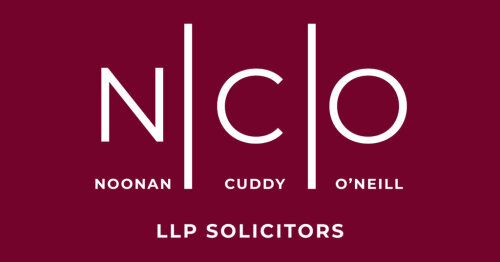Best Toxic Mold Lawyers in Loughrea
Share your needs with us, get contacted by law firms.
Free. Takes 2 min.
List of the best lawyers in Loughrea, Ireland
About Toxic Mold Law in Loughrea, Ireland
Toxic mold is a significant concern for property owners, tenants, and anyone who spends time indoors. In Loughrea, County Galway, as in the rest of Ireland, issues arising from the presence of toxic mold often intersect with property law, landlord-tenant rights, public health, and building regulations. Toxic mold can cause or worsen health problems such as respiratory issues, allergies, and other serious medical conditions. Legal disputes may develop when mold is found in rented homes, workplaces, or properties that have recently been purchased. Understanding your rights and responsibilities regarding toxic mold is crucial, whether you are a tenant, landlord, property owner, or contractor.
Why You May Need a Lawyer
Legal help is often necessary in cases involving toxic mold, especially when health or property damage occurs. Common situations include:
- Landlord-tenant disputes: Tenants may face health issues due to mold and seek remedies or compensation from landlords who fail to address the problem.
- Property transactions: Toxic mold discovered after purchasing a property may prompt buyers to seek recourse for undisclosed defects.
- Employer-employee workplace safety: Employees exposed to mold in the workplace may have rights to a safe work environment and may need legal advice if employers do not act.
- Contractor liability: Builders or renovation contractors may be held responsible for improper construction or water damage leading to mold growth.
- Insurance claims: Insurance coverage for mold remediation and property damage can be complex, and disputes may arise over policy terms.
Legal assistance ensures your rights are protected and supports you in pursuing remedies like remediation, compensation, or contractual enforcement.
Local Laws Overview
While there is no specific legislation exclusively governing toxic mold in Loughrea, several laws and regulations impact rights and responsibilities related to mold:
- Landlord and Tenant Law: The Residential Tenancies Act 2004 and its amendments outline landlord obligations to provide habitable accommodation, addressing issues like damp and mold under minimum standards.
- Public Health Legislation: The Environmental Health Service in Galway County enforces standards relating to public health, and can intervene if mold poses a health hazard.
- Building Regulations: The Building Regulations 1997-2022 impose obligations for the construction and maintenance of buildings to avoid hazards like inadequate ventilation or water ingress that can lead to mold.
- Sale of Goods and Services/Consumer Protection: Buyers may have recourse under contract law if properties are misrepresented or defective due to mold issues.
- Health and Safety Law: Employers have a duty under the Safety, Health and Welfare at Work Act 2005 to ensure safe working conditions, which includes addressing mold if it presents a risk to health.
Local authorities, such as Galway County Council, can enforce legal standards and may order remediation in certain cases, especially involving rental or multiple occupancy housing.
Frequently Asked Questions
What is toxic mold?
Toxic mold refers to certain types of mold that produce harmful substances called mycotoxins. These molds can cause a range of health issues, especially for sensitive individuals.
What are common symptoms of toxic mold exposure?
Symptoms can include respiratory problems, coughing, sneezing, headaches, skin irritation, and more severe reactions in people with allergies or weakened immune systems.
Who is responsible for removing toxic mold in a rented property?
Landlords are generally responsible for maintaining rental properties and ensuring they are free from hazards such as mold. However, if a tenant's actions have caused the mold, responsibility could shift.
Can I break my lease if there is toxic mold?
You may be able to terminate your lease if the landlord fails to provide a safe, habitable environment. Legal advice is recommended before taking action.
Is there financial compensation available for health problems caused by mold?
Compensation might be available if negligence led to your health issues. This requires proving the connection between mold exposure, your health problems, and someone else's legal responsibility.
What should I do if I find toxic mold in my workplace?
Report the issue to your employer. Employers are legally required to ensure a safe work environment. If nothing is done, you may contact the Health and Safety Authority or seek legal advice.
How is toxic mold identified and remediated?
Professional inspections and laboratory tests are used to identify toxic mold. Remediation should be handled by certified professionals, particularly for significant infestations.
Can my home insurance cover mold damage?
Some insurance policies may cover mold damage if it results from a covered event, like a burst pipe. Coverage often excludes gradual issues due to poor maintenance.
What evidence do I need if I want to make a legal claim?
Document the problem with photos, keep records of all communication, gather medical reports if relevant, and obtain independent inspections as evidence.
Who enforces mold-related laws in Loughrea?
Multiple authorities may be involved, such as the Environmental Health Service, Galway County Council, and the Health and Safety Authority, depending on the context.
Additional Resources
If you are dealing with toxic mold in Loughrea, the following resources may prove helpful:
- Galway County Council Environmental Health Service - for housing standards and public health issues
- Residential Tenancies Board - for landlord-tenant disputes
- Health and Safety Authority - for workplace mold exposure
- Irish National Consumer Agency - for consumer rights in property transactions
- Mold assessment and remediation professionals - for independent inspections and solutions
Next Steps
If you believe you have a toxic mold problem that requires legal attention in Loughrea:
- Document the issue thoroughly, including photographs, communications, and any health or property impacts.
- Contact relevant authorities, such as Galway County Council or the Health and Safety Authority, depending on your situation.
- If you are a tenant or property owner, reach out to your landlord, property agent, or builder to discuss and attempt to resolve the problem.
- If the matter remains unresolved or has caused significant harm, consider consulting a solicitor experienced in property or personal injury law to assess your rights and options.
- Remember, early legal advice can provide clarity and potentially save time and resources as you resolve your toxic mold issue.
Taking prompt action is key to protecting your health and rights when facing toxic mold situations in Loughrea.
Lawzana helps you find the best lawyers and law firms in Loughrea through a curated and pre-screened list of qualified legal professionals. Our platform offers rankings and detailed profiles of attorneys and law firms, allowing you to compare based on practice areas, including Toxic Mold, experience, and client feedback.
Each profile includes a description of the firm's areas of practice, client reviews, team members and partners, year of establishment, spoken languages, office locations, contact information, social media presence, and any published articles or resources. Most firms on our platform speak English and are experienced in both local and international legal matters.
Get a quote from top-rated law firms in Loughrea, Ireland — quickly, securely, and without unnecessary hassle.
Disclaimer:
The information provided on this page is for general informational purposes only and does not constitute legal advice. While we strive to ensure the accuracy and relevance of the content, legal information may change over time, and interpretations of the law can vary. You should always consult with a qualified legal professional for advice specific to your situation.
We disclaim all liability for actions taken or not taken based on the content of this page. If you believe any information is incorrect or outdated, please contact us, and we will review and update it where appropriate.









